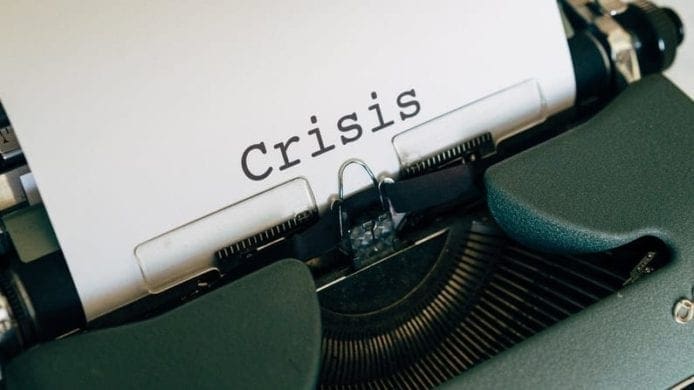Keep It Together: Crisis Management 101
A crisis is a point in your life when you are overwhelmed, and your regular routine won’t solve the problem. When you experience a period of extreme difficulty, trouble, or danger, you need a way to manage the situation.
Experts at the National Institute of Health agree that the best way to manage a crisis is to have a plan. First responders, like emergency medical personnel and law enforcement, develop crisis management plans for disasters and emergencies. While you can’t predict when a crisis might strike, you can plan for likely scenarios. Crisis management begins with the attitude of when not if.
Natural disasters are potential crises. If you live in an area where hurricanes, tornados, floods, or earthquakes happen, you need a plan for when they affect you. Your city and state have crisis management plans for public emergencies, including natural disasters, epidemics, and mass casualty situations like multi-car accidents or a building collapse.
You can manage the crises in your life if you have a plan. No matter what the situation is, the worst response is not knowing what to do. Creating a crisis management plan helps you keep it together and get through anything.
Your Crisis Management Plan
A crisis management plan includes the following parts:
- Victims First
- Act Fast
- Be Responsible
- Take Care of the Basics
- Engage Others
Victims First
A victim could be you, a loved one, or a coworker. Researchers at Northeastern University identify a victim as the person or people affected by a crisis. Your first concern needs to be for the victim, not about who to blame or how to cope after the crisis. Imagine your coworker having a heart attack at the office. Your first duty is to help them, especially if you know CPR or are designated to call 911. When a crisis starts, it’s not the time to think about blaming your coworker’s health on their smoking or overeating or worrying about finishing a project without them. You need to focus on the victim and the crisis to help them.
Act Fast
Slow actions can make a crisis even more unmanageable. If you don’t act fast when your coworker collapses, the delay in starting CPR or getting medical help can make a difference in their survival. Calling their family right away instead of waiting until you hear from the hospital about their condition may give the family time to talk with their loved one before heart surgery. Informing your boss or the Human Resources department about the crisis allows them to quickly arrange medical leave paperwork, benefits, support like flower delivery to the hospital. It also allows them to inform the entire team and institute a plan for completing projects.
Be Responsible
If you have a way to help, step up, and be part of the solution. If a friend is injured or sick, creating a crisis for the family, offer to make food, walk their dog, or drive them to appointments. A crisis management plan relies on people taking action to minimize the effects of the crisis. If you lose your job, manage the crisis by updating your resume and networking with your contacts. You won’t undo the crisis, but you can manage the aftermath of it.
Take Care of the Basics
Insurance providers, who help people through crises like home fires, car accidents, and medical issues, remind you to take care of your basic needs during a crisis. Even when things are difficult, you need to eat healthily and get enough sleep, so you are focused and alert. People who have survived extreme conditions first took care of the basics. Lost hikers and people stranded in the wilderness secured water, shelter, and food. Paying attention to the basics helps you manage and survive a crisis.
Engage Others
A crisis is an extreme situation that you can’t fix alone. You need to ask others for help and accept help when it’s offered. Managing a crisis involves knowing who can help you and share your need for support. Calling 911 when you’re in a dangerous situation, going to the hospital when you’re sick, and reaching out to family and friends for help are examples of engaging others to help manage a crisis.
You can keep it together through any crisis by having a plan. Crisis management begins with focusing on who needs help, getting help quickly, and being responsible with your resources and abilities. Taking care of your basic needs and allowing others to help you are ways to survive and end a crisis.





